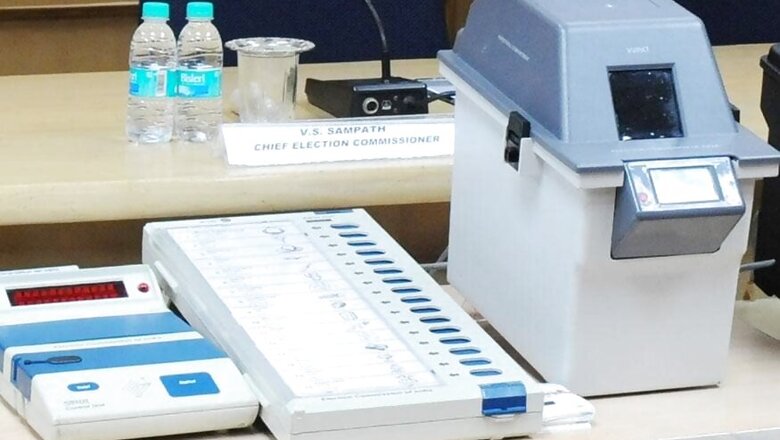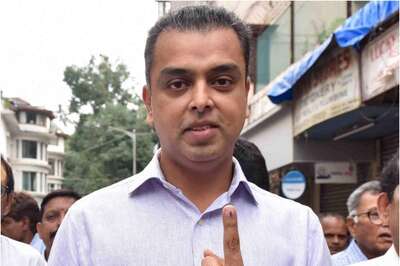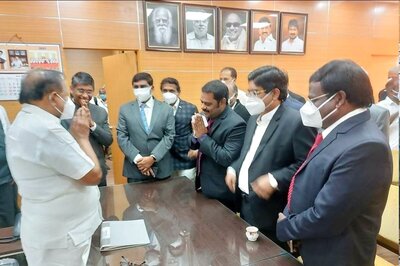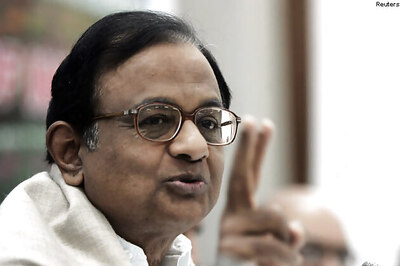
views
New Delhi: As Assam went to polls in the third phase of the Lok Sabha election, former Assam DGP Hare Krishna Deka complained of an error in the voter verifiable paper audit trail (VVPAT) at the polling booth in Lachitnagar Lower Primary School and said the VVPAT slip showed a different name than the candidate he voted for.
However, he was admonished and warned that if he lodged a complaint, which later turned out to be false, he could face six months in prison. Deka said that this deterred him from filing a complaint.
According to former Chief Election Commissioner and an expert on India’s electoral laws, this was a much-needed rule and should not be done away with.
N Gopalaswami, who served as the 15th Chief Election Commissioner of India and was awarded the Padma Bhushan in 2015, told News18 that such claims of mismatch were there to scuttle an electoral process.
“This is absolutely correct. There are a lot of ways whereby a free and fair poll process can be scuttled. This is one of the ways. If a person makes false allegations then he should not be allowed to go scot-free. If the complainant is genuine, then no one would have any issues. If one makes this allegation then the issue is discussed far and wide. In the absence of any such penal measure, no one would take this seriously,” said Gopalaswami.
The former CEC also recollected how a Tamil Nadu political leader had made certain ‘similar wild allegations.’ “The politician had raised the issue just for the sake of it. Such allegations cannot go unchecked. Look at the kind of allegations being made against the Supreme Court. You think there is fear?” said Gopalaswami.
According to the EC’s manual on the use of EVMs and VVPATs, a complaint of wrong printing by VVPAT has to be reported to the presiding officer, who “will take a declaration explaining that if found false he (the complainant) can be penalised”.
The presiding officer will then record the complaint and allow the complainant to cast a test vote in the presence of the presiding officer and polling agents.
If the complaint is found to be valid, the presiding officer will stop polling and report to the returning officer. “Since the introduction of VVPATs, more than 18 crore voters have cast their votes ... & ONLY 1 (one) complaint received ... which was also FOUND TO BE FALSE,” the manual further read.
However, Swaraj India president Yogendra Yadav told News18 the rule was “obnoxious” and that it “must be struck down.” “There is no way to find out which was the slip that the voter had got displayed in front of him. Only the VVPAT slips can be counted to see if the total is matching with that of the EVM machine,” said Yadav.
Yadav clarified that the only way to test what the voter has said was correct or not was to do a re-test. “If a voter states that his vote does not match that of the VVPAT, then here would a re-test of vote. All the polling officers would be present to see and check the VVPAT tallies with the EVM. That is why what the polling officer said was correct as he was speaking in accordance with law. But this law is itself obnoxious,” said Yadav.
“Unfortunately, this has been written into the rules itself which is completely arbitrary and needs to challenged and struck down. If the DGP does not have the courage to do this, which sane person in the world would dare to? Then the EC goes on to say it has not received any complaint. How can there be any complaint when there is such a fear? Now there is no system of on-spot verification of a complaint,” added Yadav.
A political slugfest erupted over the use of VVPATs after 21 opposition parties once again approached the Supreme Court on Wednesday asking it to review the order on counting of voter slips of only five EVM machines in every assembly segment. The parties have reiterated its demand that at least 50% VVPAT slips be cross-checked.


















Comments
0 comment